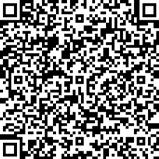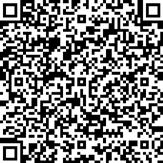The GLOBAL ADVOCATE
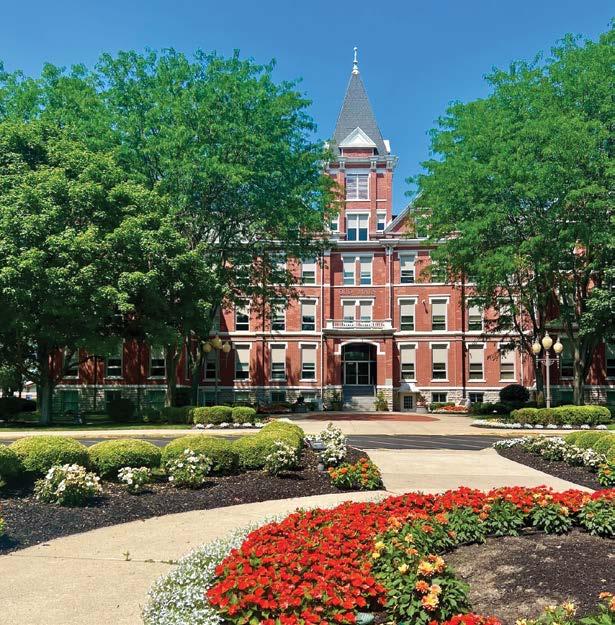


Earnestly contend for the faith which was once delivered unto the saints (Jude 3b).
THE GLOBAL ADVOCATE (ISSN 0009-630X) is published bi-monthly by the Churches of God, General Conference.
Established June 5, 1835 as THE GOSPEL PUBLISHER, re-established on May 1, 1846 as THE CHURCH ADVOCATE, and re-established on October 1, 2019 as THE GLOBAL ADVOCATE.
Rachel Foreman, Managing Editor
The Global Advocate, official publication of the Churches of God, General Conference, exists to encourage members of the CGGC to maximize their collective potential for Kingdom impact.

Correspondence: Address correspondence to The Editor, The Global Advocate, Churches of God Publications, PO Box 926, Findlay, OH 45839, or email to RachelF@cggc.org
Periodical rate paid at Findlay, Ohio.
Postmaster: Send address changes to THE GLOBAL ADVOCATE, PO Box 926, Findlay, OH 45839.
© 2024, Churches of God, General Conference
2 July/August 2024
Founded in 1882 by the Churches of God, the University of Findlay (UF) represents the long-held dream of our denomination's founders to educate the people for God, and to improve society. Our earliest missionaries, like Clara Landes and Viola (Hershey) Cover, were trained and released from the University of Findlay to go to foreign fields like India and Bangladesh. And they are not alone. Countless Churches of God pastors, administrators, teachers, missionaries, and leaders have been profoundly impacted by the University of Findlay. Yet, the relationship between the Church and the College hasn’t always been easy or even well-defined. In this issue, we talk to key stake holders at UF, like the President, Dr. Fell, and Dr. Sarah Fedirka, an English professor at UF who has taken on the role of facilitator of the new Watterson Center for Ethical Leadership. We’ll even talk to a student who has recently given his life to the Lord, and we’ll learn how Campus Ministry is shaping lives like his. Lastly, we’ll consider the big news of the merger between the University of Findlay and Bluffton University against the backdrop of UF’s history. Join us as we dig deep into the University of Findlay, our historic church college.

90+ DEGREE OPTIONS
University of Findlay has more than 80 bachelor’s degrees, 11 master’s degrees, and four doctoral degrees
CAMPUS FOOTPRINT
The University’s 350-acre campus includes a beautiful main campus that offers open green spaces, advanced academic buildings and on-campus housing. Our Animal Science and Western Equestrian Riding Complex, English Equestrian Riding Farm, All Hazards Training Center and a 55-acre wetland offer hands-on learning opportunities.
GLOBAL PERSPECTIVES
Nearly 400 international students from more than 35 different countries contribute a global perspective to our campus and community.
LEADING BY EXAMPLE
More than 200 full-time faculty members provide teaching, accessibility, guidance and opportunities for undergraduate research and experiential learning. Our faculty support the Quality Matters initiative which drives excellence in online course design.
ENROLLMENT TRENDS
Full-Time Undergraduate Enrollment (excludes College Credit Plus students)
Fall 2020 - 2,137
Fall 2021 - 2,135 Fall 2022 - 2,193
Full-Time & Part-Time Graduate Enrollment
Fall 2020 - 1,095
Fall 2021 - 1,041
Fall 2022 - 1,104
*fall semester - 6th week enrollments - Sept. 19, 2022
Founded by the Churches of God General Conference and the City of Findlay in 1882, the university has flourished due to visionary leadership and private philanthropy. We stand ready to deliver on the promise of academic excellence, transformative experiences, and a supportive community grounded in faith and philanthropic principles.
*2023 stats provided by the UF Office of Marketing and Communications
College of Sciences: 914 College of Health Professions: 417 College of Business: 314 College of Arts, Humanities, and Social Sciences: 229 College of Education: 182 College of Pharmacy: 140 Other/Undeclared: 47 www.findlay.edu


You’ve been the President of the University of Findlay since 2010. When you started, did you imagine being President here for 14 years?
I recall being asked by a trustee how long I would commit to staying and answering that I hoped to stay 5-10 years and that I understood that that would depend primarily on the assessment of the trustees.
My approach to leadership has always been to collaborate, deliberate, and decide—in that order. Collaborating with my UF colleagues and our students has kept me focused on our shared mission and inspired me to look to the future of this great university in behalf of our students. I have learned new lessons about leadership every year at UF, some from decisions that went well, thanks to the help of many colleagues, and others from decisions that required a great deal more collaboration and deliberation.

UF has added 12 bachelor’s degrees, 7 master’s degrees, and 3 doctoral degrees. We currently have 12 fully online programs, undergraduate and graduate, in the areas of business; environment, health, safety, and sustainability (EHSS); education; pharmacy; marketing and communication.

UF has added new facilities and plan another addition:
Center for Student Life and College of Business opened in 2017 (pictured on this page)
• This 75,000-square-foot addition to campus made possible through private and corporate donor support houses College of Business classrooms and faculty offices, the UF bookstore and a large food court – a great place for students to gather, study, and socialize.
Conda STEAM Educational Center opened (2021)
• Integrates art and creativity with nature and science.
• Brings people of all ages to campus, encouraging investigation of scientific questions and hands-on learning.
• Allows UF students to volunteer and assist both the young and the young at heart in the STEAM process.
Dick Strahm Champions Field for athletic practice constructed (2023)
• UF has 22 men’s and women’s athletic teams.
• Fun fact: Our nationally-ranked teams are made up of Oiler student-athletes who graduate at a 15 percent higher rate than the national average. UF is fourth in the nation for most athletes in the nation with a 3.5 GPA or better.
Fundraising is underway for the Billy and Brenda Watterson Center for Ethical Leadership.
• A place to engage in a reasoned, principled exchange of ideas to solve problems and set future strategy.
• A place to discuss current and future issues, while students develop ethical thought, critical thinking skills, humanitarian ideals, and a desire to serve others.
• One of our goals is to prepare graduates for leading ethical lives in their chosen fields and being civically engaged in their communities.
• These qualities are rooted in Christian values of compassion and respect for others, courage to seek knowledge and serve others, and hope for a bright future for our students and the world.
Educating and caring for students during the COVID years.
Keeping education affordable for students while sustaining a budget sufficient to offer a great education to them.
Given our current cultural climate, what the challenges of being a private school with historical roots in Christianity?
To make clear that UF is grounded in Christian faith, values its founding and ongoing relationship with the Churches of God General Conference, and welcomes all who will join us in respectful relationship with one another, despite differences of belief.
In the last decade, UF has been embracing its historical roots with the CGGC, why is that?
I believe that is occurring, in part, because our trustees, many colleagues on campus, and I see those roots as God’s calling upon us and the University of Findlay.
From your perspective, how can the CGGC and UF continue to work alongside each other best?
I deeply appreciate the support and encouragement our campus and I have received from CGGC. UF has taken steps to do more in making clear its founding to new students and employees. As our work together continues to grow, if differences arise between us, I pray that we can turn those differences into opportunities to show Christ’s love to one another before a watching world in desperate need of that love.
Higher education is facing significant changes and challenges in the coming population cliff of traditionally aged college students and negative perceptions of higher education. Small campuses with under 1,000 in enrollment will face particularly difficult challenges in the years to come even if the quality of education is high and the current financial management is handled responsibly, campuses such as Bluffton. UF sustains a strong enrollment, and it could be even stronger with this merger opportunity. These times call upon all of us to be innovative and forward-thinking. From a vantage point in the future, I believe we will look back at this moment in the history of higher education as one that required new approaches and bold actions. President Jane Wood at Bluffton University and I believe this merger will be a powerful new approach.
Through this merger, the universities would position themselves to provide increased educational opportunities that prepare current and future students to lead and serve in their local communities and beyond. Students and employees would benefit from access to expanded resources on both campuses located 20 miles apart in Northwest Ohio. The decision to pursue a merger signals the universities’ ongoing commitment to faith and intellect, the sciences and the humanities.
In the near future, what do you perceive as UF’s largest opportunities and challenges?
One of our greatest opportunities will be to adjust quickly how we prepare students to meet changing workforce needs while we take time to know and care for each student. One of our greatest challenges will be the same.

by Jacob Clagg
lireza (Ali) Majidi found at the University of Findlay (UF) what he had been searching for much of his life, a sincere relationship with God, and a way to express his beliefs without being rejected.
It’s something that Ali says his family has wrestled with in the Islamic country of Iran, and it was the very reason he left. Ali, who just finished his sophomore year at UF, is now a born-again Christian who cannot return to Iran until the government changes its mood toward non-Islamic faiths. Ali’s story is a powerful reminder that following Jesus in a world that frequently rejects Him comes at a cost, and how impactful radical Christian hospitality can be.
In 2022, riots broke out in Iran over the imprisonment and subsequent death of a woman by the name of Mahsa Amini, who was arrested for wearing her hijab incorrectly. Alireza, whose family has always struggled with Iran’s severe enforcement of Islamic law, recounted how his own sister had faced similar, but thankfully non-lethal, targeting by police years before. She was once taken off the street by the police and held in custody for four days. The police refused to respond to the family’s calls or tell them where she was. Ali said, “This kind of thing put so much anxiety in my mother’s eyes. I was asking myself, ‘Why? Why is this happening to us?’”
It wasn’t just the ideological pressure on his family that moved Ali. His own feelings of rejection were palpable in our discussion. Ali told me that he was always an inquisitive student of history and religion, and yet his views were never accepted when he talked about them in public. “Every time I wanted to express myself in the society, in every community that I was in, I was rejected. For every reason. For any reason.” As Iran became increasingly authoritarian, Ali’s family grew increasingly isolated and events like this helped solidify his plans to eventually leave.
“When I became 18 or 19, I decided to not spend my whole life in that kind of society,” he said, while reflecting on his complex emotions around leaving his home country. “It kind of seems like I was a coward, like I just wanted to get out and get rid of Iran. But honestly, you cannot do anything.”
Ali’s arrival at Findlay was never a forgone conclusion and the United States wasn’t even Ali’s first choice. Initially, he had planned on studying in Italy or Germany, but Covid restrictions made even getting an audience at the embassy too high a hurdle to overcome. Ali then pivoted to the United States which posed other challenges. Living in Iran, Ali couldn’t go to a US embassy because, well, there isn’t one and there hasn’t been since the Iranian Revolution of 1979. Instead, Ali had to enter Armenia and go to the embassy there in order to begin the visa process.
Ali was applying for his initial visa in the aftermath of Covid, which resulted in many higher learning institutions simply closing their doors to international students. Getting into the US and getting to a school that was willing to host students was a frustrating process, typified by the University of San Diego initially accepting Ali and allowing him to begin the registration process, only to reverse their decision and cancel all international student applications. Lucky for Ali, one of his friends knew about UF and suggested he apply.
Ali wasn’t expecting to find his faith at UF. “That was not part of my mindset at all. My mindset was just studying and graduating, and that was it,” he said. He had hoped to study biology and do some medical work. Anything outside of that professional scope wasn’t part of his plans. In the newly built College of Business and Student Life (CBSL), Ali saw a banner for the film society on campus, a Campus Ministries group that watches films and discusses them. Having an interest in film, Ali attended and quickly found people who were interested in talking to him and hearing more about his life. From there, Ali learned about Campus Ministries and all the other events, Bible studies, and book clubs they have on campus. His first semester on campus was fairly light so he had plenty of free time and decided to go to those things too.
Having very little experience with Christianity, Ali admitted that he was “enjoying reading the Bible,” but his first deep dive into Christian belief was eye opening and it challenged the Islamic perspective he had been taught. Ali recounted what shocked him the most when he was first learning about the Christian perspective of Jesus. “The first time I heard Pastor Matt say that Jesus is the Lord, fully God, fully human, I was really surprised,” he
said. “I thought Jesus was just a prophet. This is the Islamic perspective of Jesus.”
After this, Ali began attending church in Findlay. In fact, he attended numerous churches, wherever his friends might take him. “I tried most of the churches in Findlay,” but in the end it came down to a church he could easily and reliably walk to. After church, Ali’s friend would listen to him talk about his beliefs and he had questions about how his understanding of God from his Islamic perspective differed or aligned with what he had heard in that morning’s message. “They would listen and care and they would pay attention,” Ali said, gratefully. “That was the first time I was expressing myself and not being rejected.”
Over the months, it was this feature of Christianity that drew Ali in more and more. “They were very patient and eager to answer my questions. That love that was present in their community, that attracted me. And I told myself that, if this love is what Christianity means, then I want to be Christian.”
Ali was officially baptized last year, in 2022, and he called his parents the very next morning to tell them. “I said, if they don’t agree, then that’s okay. Because I wasn’t afraid that I might be rejected by my family. I was so excited and interested in Christianity. That love I saw; it was like you had seen God himself. It changes you a lot. I’ve changed a lot.”

Ali spoke about what it was like telling his parents the first time, and how they were both very worried for him. “They were shocked,” he said. “They knew I had been going to a church… but they didn’t expect me to become Christian.” And one can easily imagine the logical leap Ali’s family made. Now that he was a Christian, it wouldn’t be safe for him to come back home. For his parents, it meant they might not see their son again for many years. When asked if Ali ever plans to go back to Iran, his answer was a tentative, “No.” He said, “It’s Islamic law that if someone changes their religion, they would be persecuted… It’s not safe for me to go back to Iran right now.”
But that hasn’t stopped Ali from enjoying his life here in the US, and being grateful for the opportunity to know God that Campus Ministries has provided. “Now I have a purpose, everywhere I go, I can be a representative of Christ. I can show God [to others] by showing love to other people.”

In order to stay in the United States, and avoid persecution back home, Ali is currently seeking asylum to stay in the United States and is currently waiting to hear about when he’ll be going to court. Many Americans don’t know that the asylum seeking process is one of the most rigorous ways to gain permanent entry into United States, and for Ali, it could take up to 5 years from start to finish. Thankfully, Ali has his authorization card to work in the United States to support himself. “My biggest concern is how I’m going to meet my tuition needs,” Ali told me. As a foreign citizen, scholarship opportunities are hard to come by, and tuition assistance is almost non-existent. This is compounded by the continually worsening value of Iranian currency, the Rial, which has seen more than 30% inflation rate for multiple years in a row. Altogether, each semester will continue to be a challenge for Ali to make tuition payments, even as Campus Ministries tries to help support him.
Campus Ministries has played a pivotal role in transforming Ali’s life, and he wanted to make sure people knew how impactful Pastor Matt has been
on his life. “Pastor Matt has been a bigger brother for me,” he said. Ali explained in our conversation how Pastor Matt has been guiding Ali through his financial issues as well as his faith, but admitted he struggled to express his gratitude fully. “I don’t know how to thank him for all he’s been doing. I’m thankful he’s my pastor.” Regardless, Ali’s giving back by working at CGGC camps. My interview with Ali took place over a Zoom call while he was on a break from working at Campy Otyokwah in Ohio, helping prepare the camp for the summer rush. If you feel called to help support students like Ali who are finding their purpose in God at UF, you can donate to the general Campus Ministry fund on our website under “Partnerships,” or by mail using the giving code: CM1500.
Alireza finished our conversation by telling me that he wants everyone to experience the love of God he experienced, “even those people who might hurt me before, even those people, I want those people to experience that love and what I saw,” he said. “I think that should be the purpose of all of us.”
with

What is Watterson Center for Ethical Leadership (WCEL) and what is your role in it?
There are two similarly named aspects of this project: the Watterson Center for Ethical Leadership is the designation for the building that will house a majority of faculty in the College of Arts, Humanities, and Social Sciences (CAHSS) as well as what will become the Watterson Ethical Leadership Institute. The Institute will offer the programs, curriculum, etc. that we anticipate becoming an integral part of our campus culture and beyond.
Currently, my role is one of facilitator. I facilitate the working group tasked with designing the programmatic and pedagogical aspects of what will become the Watterson Ethical Leadership Institute.
What do you hope to accomplish in the near term and long term with the WCEL?

Within the next 1-3 years, we’d like to see the institute have its own space on Findlay’s campus. It is unlikely the Watterson Center building would be completed in this short-term, but the members of the working group know that we can begin our work without a new building—we simply need a space where we can be visible on campus. In the longer term, we’ll work to develop the institute’s programs and curriculum so that within five years, we are fully operational.
Shouldn’t leadership be inherently ethical? Why do we need ethical leadership in our present context?
Yes, leaders should inherently be ethical. Many are. Unfortunately, many are not. We can all think of leaders (today and in the past) who lead from places of ego rather than from places of corporate well-being. Some

leaders seek power, status, money. While seeking these results does not make one unethical, leading from this place can tempt one to act from short-sighted self-interest, which often leads to unethical behaviors. These leaders are often easy to identify—think demagogue.
Where University of Findlay students and employees will more than likely need the grounding provided by the Watterson Ethical Leadership Institute are the everyday decisions leaders at every level are asked to make. The decisions that don’t fall into easy categories of “right” or “wrong” but live in a space of gray. Without education and the opportunity to practice making these types of decisions, as Billy Watterson told the working group, we fall back onto old habits. We might look the other way, for example, rather than confront an employee who needs correction because that employee is our friend. We might respond in a meeting out of anger because we have not had the opportunity to practice leading from a place of grace. These are the spaces where the Watterson Ethical Leadership Institute will do its work. We seek to equip students for meaningful lives and productive careers as ethical leaders in service to others.
In what ways is UF already teaching/guiding students toward ethical leadership, and in what ways could more be done?
The University of Findlay is already helping students develop as ethical leaders in many ways. Through a survey of our employees, the working group learned about the various ethical leadership as well as ethics and leadership courses offered across colleges and programs at all levels—from first-year experience courses to senior capstone seminars. Experiential learning is another way our students are guided in their development as ethical leaders. Students learn what ethical leadership looks like when working with patients in a clinical setting or when treating animals or when traveling within the US and abroad.
From the data collected through its employee survey, the working group has also learned that our campus-wide efforts to develop our students as ethical leaders are frequently siloed within a college or within a program. Important work is being done; the working group would like to see that work done with more intention and collaboration so that ethical leadership development becomes an integral part of our campus culture.


6 Lift up students at Winebrenner Theological Seminary as they follow God’s path for their lives.
5 Today is Independence Day in Venezuela . Pray for our brothers and sisters there to fearlessly proclaim true freedom in Christ!
13 Be in prayer for GR Director Travis Helm for clarity and focus as he makes decisions for Global Reach and its missionaries.
12 Happy Birthday to Don Dennison who serves as Intentional Interim Pastor in Illinois.
4 Thank the Lord for the freedom we have in the United States to worship Him without fear. Pray for those who do not have that freedom.
3 Pray that the ministry in Mexico would be edified and strengthened.
2 Intercede for Samir Singha as he oversees the expanding slum and leper colony ministry in India .

1 Join in prayer for your local church and community. Ask God to provide for the needs of everyone.
20 Happy Birthday to Darlene Mattox , Pensions Administrative Assistant at the CGGC office! Thank God for her work.
19 Remember affiliates Jake & Lauren Jones* and their family as they visit supporters this summer. They serve in Colombia with SAM.
11 Intercede for the Southwest USA ACTS Team as they serve there July 9-18.
10 Jesus said “ My house will be called a house of prayer for the nations ” (Mark 11:17). Trust for a revival of prayer in the Church.
9 Celebrate Argentina’s Independence Day with our newest Global Reach field!
8 Pray for Bryan & Katie Crabtree as they spend time as they spend time in the USA visiting family and churches.
7 Happy Birthday to CGGC Director of Communication Jacob Clagg!
27 Trust the Lord to provide for Pastor German and his family as they continue to serve in Nicaragua.
26 Lift up in prayer the Pastors at the churches in the Dominican Republic.
18 Call upon the Lord for the safety and ministry of the Mexico ACTS team , which leaves today .
17 Lift up GR Director Travis Helm in prayer as he travels to Bangladesh to meet with government officials and the India Mission board.
16 Remember in prayer those in law enforcement who protect this nation. Pray for their safety in all situations they encounter.
15 Pray that the people of India see the love of Christ in our brothers and sisters. Give thanks for the multiplication of ministry!
14 Happy Birthday Everett Teller! Thank God for him and his ministry at Tsaile Church.
25 Call upon the Lord to bless Victor Montalvo as he serves as director of Latino Ministries.
24 Pray for Heather Houghton and Wendy Zumbo as they are in Bangladesh doing women’s ministry training for the Mission.
23 Seek the will of the Lord for Rod & Mila Ayers and for their hearts to submit to the Holy Spirit’s direction.
22 Give thanks for Jacob & Haley Day and pray for their leadership at Gamerco Church of God.
21 Ask God to open new doors of opportunity for our Mission Advancement Volunteers: Jeff & Julie Burns .
31 Ask the Lord to bring an outpouring of encouragement and spiritual growth to the Kenya church plants and their pastors.
30 Thank God for the faithfulness of Pastor Dave & Kenda Kapaku in Maui, Hawaii. Ask the Lord to continue adding to His church those who are being saved.
29 Lift up in prayer all the regional directors and ask for encouragement as they seek to honor God.
28 Be in prayer for Brazil and Field Leader Ernesto Nunes. Ask God for a revival in all areas!

3 Uphold Rod & Mila Ayers as they oversee Haiti’s Sister Church and School ministry.
2 Ask the Lord to provide Matt Ginter and Josiah Parkhurst with wisdom to help students who seek a relationship with God.
10 Pray for Dominican Republic directors, Fremio & Evelin Jimenez , that they would have wisdom to serve well.
9 Happy Birthday to Rachel Foreman , managing editor at the CGGC office! Ask for God’s continued blessings on her life.
17 Remember to pray for your neighbors who don’t know the Lord, and ask God to provide opportunities to befriend them and show Jesus’ love.
16 Pray for the recruiting and development of future leaders at Winebrenner Theological Seminary for our churches with a mission mindset.
24 Join together in prayer for the pastors who serve our work in Mexico. Pray for spiritual growth and encouragement for the churches.
23 Keep praying for Victor Montalvo as he oversees ministry in the USA, Mexico, the Dom. Republic, Venezuela, Nicaragua, and Argentina.
31 Happy Anniversary Dave & Kenda Kapaku ! Pray for boldness in preaching the Gospel at Kahana Door of Faith church in Hawaii.
30 Lift up Pastor Maria Grigioni , International Field Leader of Argentina, as she reaches out to new communities.
1 Keep John & Toni Thumma in your prayers as they are serving in New Mexico. Pray for good health and energy.
8 Rejoice with Jacob & Haley Day as they celebrate their anniversary today! Pray for their growing ministry at Gamerco Church of God.
7 Ask for wisdom in decision-making for Joseph Mwaura as he directs Voice of the Gospel Ministries in Kenya.
6 Pray for children around the world that they would come to know the love of their heavenly Father.

5 Continue to ask God’s blessings on Samir Singha and the India Mission as they provide educational opportunities to children in India.
4 Intercede for the people of Venezuela in these uncertain times. Pray for the Lord’s healing for His people!
15 Call upon the Lord as students, teachers and staff return to school this fall. Pray for growth, health, safety, and a successful school year!
14 Resolve to grow in obedience to God’s will to make disciples of all nations (Matt. 28:19). Consider how you (and your friends) will reach globally!
13 With India/ Bangladesh being in the height of monsoon season, pray for those affected by oppressive heat, humidity, floods, and waterborne diseases.
12 Happy Anniversary to retired missionaries Gordon and Annie Avey! Praise God for their many years of service in Brazil!
11 Thank God for retired missionaries Mike & Dawn VanDervort and their legacy in Haiti. Pray for peace and stability in that land!
22 Pray for global mobilization to take root among all ministry fields of the CGGC, both in the USA and internationally!
21 Rejoice always, pray continually, give thanks in all circumstances; for this is God’s will for you in Christ Jesus. 1 Thessalonians 5:16-18
20 Happy Birthday John Thumma! Praise God for his work and faithfulness. Pray for continued knowledge of the Word of God.
19 Pray for Bryan & Katie Crabtree as they begin a new school year in Thailand and continue to build friendships with neighbors.
18 “ Rejoice in the Lord always! Again I say: rejoice!” (Phil. 4:4) Pray for the Spirit of joy to fill all churches!
29 Intercede for Dr. John Costa as he reached out to villages near Khanjanpur, Bangladesh to provide medical treatment.
28 Uplift your Pastor and church leadership in prayer. Ask for God’s wisdom as they seek to live a life that pleases Him.
27 Go to God in prayer for the people of Nicaragua. Pray for peace and comfort and an understanding of the love Christ has for them.
26 Uplift in prayer GR Director Travis Helm for wisdom and clarity as he works and communicates with Global Reach missionaries.
25 As Everett & Mary Teller pastor the Tsaile Church of God, be in prayer that more souls are being saved each day.

In what ways will the WCEL add to what UF offers to students and UF’s broader community?
Billy ‘96 and Brenda Watterson see the Watterson Ethical Leadership Institute as a means for University of Findlay students and employees to have a global impact. Quite simply, they see the institute as a way to equip our students and employees with the skills, knowledge, and dispositions to become ethical leaders who will change the world. The working group’s charge right now is to assess and then make more intentional University of Findlay’s current offerings in this regard and then expand out from there. Our purpose is to bring Billy and Brenda Watterson’s vision to life.
In an article in the Findlay Mag, Billy Watterson said that “ethical leadership, equity, and inclusion” would be at the forefront of conversations held by the WCEL, what do those terms mean to you?
To me, ethical leadership is inclusive. Ethical leaders lead from a place of grace and compassion. They know themselves—their own strengths and limitations—and they develop others to likewise learn their strengths and limitations. An ethical leader recognizes that to achieve a single purpose multiple perspectives are required.
In an interview with UF’s Lauren Wolters, you said that the WCEL is “a way of saying that the humanities matter on this campus.” Can you talk more about how the WCEL might reinvigorate the humanities at UF?
As the future home to the College of Arts, Humanities, and Social Sciences (CAHSS) faculty, the WCEL building will help to reinvigorate the humanities at the University of Findlay through a new sense of presence; there will be a new building located in what is emerging as the heart of campus near the Student Life and College of Business building. While the white houses that
quite literally house CAHSS faculty add charm and history to campus, these spaces are not conducive for education in the 21st century or beyond. CAHSS faculty are spread across campus, largely siloed by discipline. This does not allow for those moments of collaboration or innovation that occur when faculty from different disciplines interact.
In terms of programs and curriculum, the CAHSS faculty teach many general education courses that focus specifically on issues of ethics and leadership—philosophy, religious studies, history. Even in my own discipline of English, students are invited to consider the “big questions” at the heart of ethical leadership. Having an institute for ethical leadership that integrates these conversations into campus culture more intentionally will reinvigorate not just the humanities but the campus itself. The working group sees the development of the Watterson Ethical Leadership Institute as having the potential to create a paradigm shift in our campus culture that results in the intentional integration of the sciences and humanities, professional training and the liberal arts.
While “ethical leadership” is not explicitly Christian, do you see a tie between the WCEL and UF’s historical roots as a high ed institution founded in the Christian faith?
I find no better model of ethical leadership than Jesus. I think this assessment holds true for Christians and non-Christians. Ethical leaders inspire their followers (their employees, their students, etc.) to achieve a shared goal by modeling love in service to others.
As we move forward with the proposed merger of the University of Findlay and Bluffton University, the working group members look forward to learning from Bluffton employees and students. In particular, we seek to learn about Bluffton’s Peace Arts tradition. We see many areas for collaboration and co-creating. We seek to honor each campus’s heritage, knowing that ethical leadership does not “belong” to a single denomination or faith tradition.


by Jacob Clagg


Many of our readers have already heard about the upcoming merger between the University of Findlay and Bluffton University, two Northwest Ohio private colleges with historic Christian roots that now believe they have a “brighter future” together. It’s a daring venture, and one that, according to a joint panel by both UF’s President and BU’s President, should see them become healthier and more attractive institutions of higher learning as the “enrollment cliff” looms ever closer. A number of different studies by independent sources suggest that high school graduation rates will peak between 2025-2027 at around 3.5 million students. From there, graduation rates, and presumably enrollment rates, are forecasted to decline well into the 2030’s. Higher education is already a tenuous business with sky high tuition costs, and frequent university closings every year reflect that reality. Higher Ed Dive, a website that reports on higher education trends, shows that, within the United States, about 3 colleges are announcing their closures every month.1

If the forecasts are to be believed, the next decade may be quite challenging for higher education. But that doesn’t mean UF and BU are going to falter or fail. UF has been through difficult transitions before, the kind that had people threatening the board of trustees, presidents being effectively forced out, and faculty turning on administration. Historically, it has been through these seasons of hardship and transition that UF cultivated its identity and vision.
In fact, Findlay College was practically born into hardship and controversy. By 1893, at only a decade old, Findlay College was struggling with finances and student enrollment to the degree that faculty were being paid half (or less) than their peers at other institutions, and that was only if they were being paid in full. Historian Richard Kern implies, in his treatment on Findlay College, that in the first decade faculty salaries were rarely paid in full due to lack of funds.2 Securing top talent and reputable professors was immensely challenging for the fledgling school, and so was encouraging new students to come. On top of this were accusations from influential people in the CGGC, like longtime Advocate Editor C.H. Forney, that the college was swiftly abandoning its “Church of God character.”3
1 https://www.highereddive.com/news/how-many-colleges-and-universities-have-closed-since-2016/539379/
2 Kern, Richard. (1984) Findlay College: The First Hundred Years, Evangel Press, Nappanee, pp. 84
3 Ibid. 82
This very well may have been the toughest time in the College’s history. The city of Findlay was happy to have the college, but too interested in its gas boom to pay the school much attention. Likewise, many people in the CGGC were being economically stretched. Farmers in particular, which made up a majority of the CGGC base, saw the prices of their goods plummet during the 1870s and 1880s at a time when the College was constantly asking the CGGC for financial support. Many in the CGGC believed that the College had been started too soon, that a sufficient endowment had not been raised, or that adequate supporters had not been found. All of this turned sentiment against Findlay College when it needed as much support as possible to become financially stable.
By 1896, the situation at Findlay College was truly dire. Deep cuts were made to staff and faculty. A new college president, Dr. Charles Manchester, walked into Findlay’s “darkest hour” as Forney called it4, and resolved to keep the college open. He even managed to persuade the General Conference to give $2,000 a year to support the college. The combination of the cuts, the extra support from the General Conference, and a recovering U.S. economy saw Findlay College begin to pay off some of its debt. Part of this was, without a doubt, the help of the remaining faculty who were willing to continue earning a very paltry salary for their work to help sustain the school. The sheer will of President Manchester and the faculty, combined with the generosity of the General Conference, saw Findlay College survive to a better day. Findlay would persevere.
Another significant transition was the increasing autonomy UF gained over the years as it decoupled its leadership from the CGGC body. Given the early warnings by CGGC officials that the College might be slipping away, it would be easy to believe that the College and the Church naturally grew apart. But the issue is more complicated than that. The trajectory towards UF becoming an independent institution wasn’t a straight line, and the Church's relationship with UF over its history has waxed, waned, and waxed again. The founding of Winebrenner Theological Seminary in 1942 as a graduate school of
4 Ibid. 95
theology within Findlay College is a strong reminder that there were very strong periods of cooperation between the Church and the College.
What ultimately gave UF its autonomy was the issue of accreditation. By the 1950s, accreditation was becoming an existential issue for the College. As the United States pushed for high quality institutions, accreditation became a key oversight tool, but it also came with legitimacy. Being unaccredited would undoubtedly mean fewer students, lower quality faculty, and less access to funding. Findlay College President Ollie J. Wilson, a somewhat controversial figure given his tumultuous tenure, pushed hard for accreditation to the North Central Associate (NCA) in 1959. One of the requirements as set out by the NCA was less direct oversight by the Churches of God, General Conference. President Wilson managed to convince the CGGC executive board that their 2/3 majority on Findlay’s Board of Trustees was sufficient oversight, and the power to veto Findlay’s board was unnecessary. Somehow, this argument was successful, and Findlay’s accreditation with the NCA was swiftly forthcoming.
This is not to say that UF’s autonomy has been unambiguously to the benefit of the CGGC. Instead, it’s to say that the difficult transition from a Church College to a Church founded College has played a significant role in shaping the culture of UF as it is today. UF now stands in the middle ground, not quite a Christian college but neither is it a bastion for anti-Christian rhetoric. There are real benefits to being in this position, and a case in point would be College First Church’s international student ministry, which has exploded in size recently, but which might never have taken off if Findlay had been an exclusively Christian college. By encouraging people of all backgrounds to come to UF, Campus Ministry and College First Church have ample opportunity to frequently engage with nonbelievers from the US and from all around the world, to serve them, and to make a powerful impact on their lives with the Gospel. It means that events held on campus frequently irk Church people. On the other hand, UF continues to encourage and support Christianity on campus, and has taken meaningful steps in
solidifying its relationship with the CGGC, especially in this most recent decade.
By 1972, there was but one issue that plagued the College from the moment Dr. Rasmussen became president. Kern says that “Accreditation was solid. Finances were good.”5 But enrollment was not. According to Kern, a student census in the fall of 1971 records 1175 students, and that number fell continually meeting its lowest point that decade in 1976 at 656 students. With enrollment cut nearly in half, President Rasmussen embarked on a series of transformations that would either alter the trajectory of the school, or see him step down. The college created an entirely new recruitment effort, pouring in more resources than before. By the next year, recruitment was slowly on the rise, “reversing,” as Kern states, “a ten-year decline.”6 Throughout the 1970s, a host of other new and exciting programs helped the college continue to grow and flourish. Part of what reversed the enrollment decline was the new international student program which saw 56 international students from all around the world come to Findlay College. By 1982, a tenth of all students on campus were international students. In addition, a special education program in partnership with Bowling Green State University was started, along with a short-lived but worthwhile new satellite school, Findlay College in Toledo, which offered a bachelor’s degree in business administration. Furthermore, new programs which now seem essential to the DNA of Findlay, like its highly successful equestrian program, were launched during this time of low enrollment.
5 Ibid. 355
6 Ibid. 355
This era of desperation, like difficult eras before, caused rampant innovation which still upholds the University to this day.
That leaves us at the present moment with its present worries and concerns. Will the enrollment cliff be as detrimental as some suggest? Possibly! Will the merger fundamentally alter UF or BU? Undoubtedly. While a merger of this kind poses some risk, and will likewise be a tremendous undertaking, the risks for not doing it seem far more threatening. The board of trustees at each respective university are in full agreement that a merger between the two would make them more secure to weather the coming storms. As an alumnus of UF, as a recent instructor of English at UF, and a student in a master's program at UF, my assessment of the risks to the merger certainly are colored more orange and black (UF’s colors) than purple and white (BU’s colors). That’s worth noting because if one were to scour the online response to the merger, there are many anxieties from the Bluffton perspective, and even an online petition which asks Bluffton’s board of trustees to press pause and allow for more time and feedback.
This present moment does seem to have the power to shape and cultivate the identity and vision of UF (and BU) for a long time to come. But UF has always survived by adapting and thriving. Speaking during UF’s darkest hour in 1893, Rev. Reuben H. Bolton once wrote of Findlay College, “Long may the College live, and we trust it will be a great blessing to the Church and humanity.”
If you want to learn more about the merger between UF and BU, you can find a plethora of information at findlayblufftonfuture.com.

Thank you for partnering with our friends and fields in Global Reach. The following are a few updates from some of our Global Reach fields. Please continue to pray for our leaders and believers as they serve God and share the Good News with seekers.

In April of 2024, Global Reach Brazil field held their annual Conference at the Parque Jambeiro Church in the city of Campinas - SP. Pastors Ernesto Nunes from Palmas TO. Pastor Roque, and Pastor Samuel from Santo Antonio de Jesus BA. Pastor Braúlio from the city of Dom Macedo BA. Pastor Gimenez, Pastor Mauro, Pastor Daniel and Pastor Lucia from Campinas SP. It was a blessed three days with encouraging preaching. Our theme this year was: BEING AND MAKING A DISCIPLE.

Pictured below are Wendy Zumbo (left) and Heather Houghton (right). They are spending 10 days this summer helping start a women’s ministry fellowship throughout our Bangladesh Mission. Both have visited the Mission before serving on ACTS Teams. Heather is part of CGGC Allegheny Region and Wendy is part of the CGGC Eastern Region. Please pray for them as they share and fellowship with the ladies.


The Bangladesh Mission unexpectedly lost a precious member of the medical and administrative team. Nur Allom, pictured below with Global Reach Director Travis Helm, was a refractionist in our Khanjanpur eye department. He also served as our central government liaison. We continue to grieve his passing. He leaves behind a wife and 18-month-old daughter. Anti-Mission activity and harassment has vastly increased since his passing. Please pray for his family and God’s provision for them. Pray for Dr. John Costa and Samir Singha (pictured at right) as they help and encourage each other as Country Directors of Bangladesh and India respectively. They face many obstacles and oversee hundreds of staff.


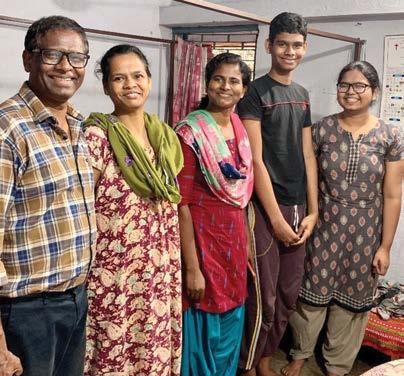

Sanat Tudu and his family help fill many roles in our India Mission. They have been instrumental in trying to fill the void left by Charusheela’s passing. They along with a few other staff (some new) have expanded our ministry to the least of these by serving in the Kolkata slums. The Mission is holding education classes for primary children and youth. This is carried out through social workers and other qualified staff.

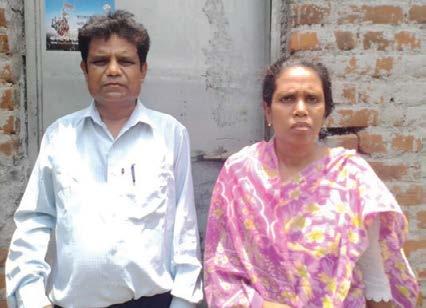

The Mission has also taken the opportunity to minister to some leper colonies in West Bengal. Samir, Sanat, and Bubai went to meet with a husband and wife (Sandip and Mitu Banowar pictured at left) as they serve the lepers by teaching among the children and ladies. Sandip also cleans wounds and applies bandages among the lepers as he prays for them. These lowly people are outcasts. Please pray for wisdom as to how God may want our Mission to be involved in helping.


The school year ended on June 7 and by the time you receive this issue of the Global Advocate, we will be in the United States for a six-week visit. Last summer, we were able to visit nice churches across Ohio and Pennsylvania to share about what God is doing in Thailand. This summer, we plan to visit churches in Ohio and Indiana to share. In addition to sharing at churches, we look forward to spending precious time with our family. Please pray for positive family memories to be created and relationships to be strengthened over these six weeks. Pray also for our children as they navigate adapting to a different living situation over the summer.

Bryan is on the launch team, along with five others, for a new church that is being planted in Udon Thani. They are planning to have a “soft launch” in August and hoping to have an official launch in December. This will be one of two churches in our region that are in English, which is a much-needed ministry for the missionaries who are always the ones leading and always engaging in the Thai language. Additionally, Thai people see improving their English skills as highly valuable and we pray they will see activities through the church as opportunities to improve their language skills. We pray that seeds would be sown, and the gospel would take root in their hearts. Pray with us as this new church prepares to launch in the coming month.

Please remember to keep Haiti in your daily prayers as our churches and schools continue to cautiously meet when they feel safe. Pictured upper right and below are Godin Church of God and Frecyneau Church of God during Sunday worship. Lastly, there is a picture of Morne Korbe School. They need a USA church partner sponsor. Thank you for the prayers and support, especially during this time of desperation in Haiti.
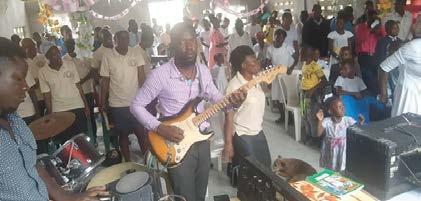
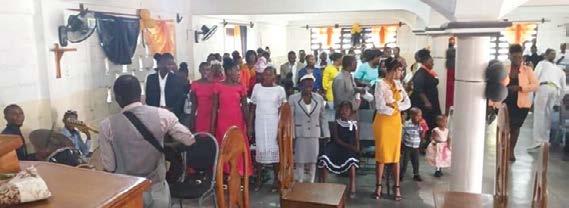

Many of our Global Reach fields continue to face various challenges of resistance as it becomes increasingly hard to share the Good News. God is faithful to answer prayer.

700 E. Melrose Ave., P.O. Box 926
Findlay, OH 45839
Phone (419) 424-1961
Fax (419) 424-3433
www.cggc.org
